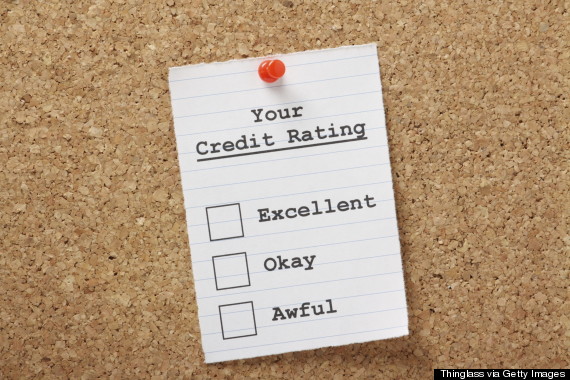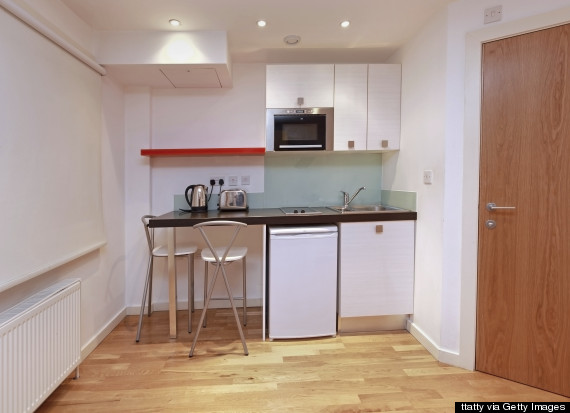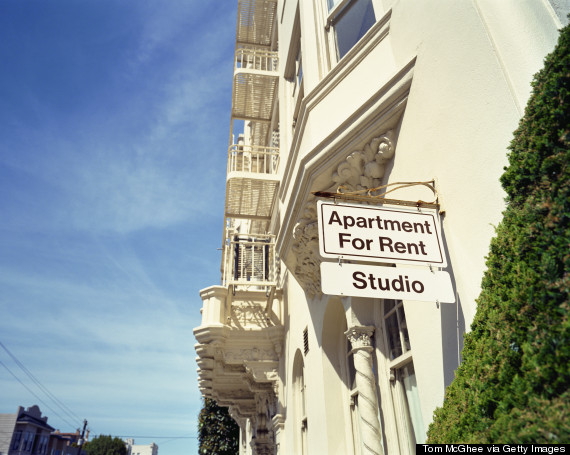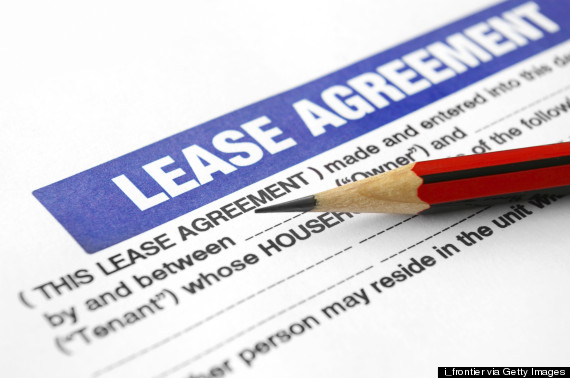If you've exhausted your patience with roommates (or your parents -- no judgment), it might be time to consider the virtues of living alone. The process seems straightforward: Possibly explore the depths of Craigslist, hand over some checks and you're done. But if you've never done the solo move before, you might want to take a moment and do your research before committing to an apartment. We spoke with Krystal Yee of the personal finance blog Give Me Back My Five Bucks and Amy Bohutinsky, CMO of real estate website Zillow via email, for their expert take on achieving a roommate-free life.
Just one note before we reveal their wisdom: This plan isn't necessarily for those who are in rental markets that could best be described as "insane" or "dream-crushing." If you happen to be in those markets (San Francisco, New York and D.C. come to mind) and have not yet observed that a giant bag of money is what it takes to live solo, then we admire your optimism.
First: You need enough savings.

The monthly rent is the tip of the (expensive) iceberg. Moving costs, rental fees, security deposits, set-up fees and other expenses should be covered. At minimum, Bohutinsky says, "A good rule of thumb is to have three month's rent to cover costs such as the first month's rent, last month's rent, security deposits and broker fees."
Know your credit score.

Landlords do check your credit score in order to see your record of paying things on time. Yee says, "Having a good credit score can sometimes be the deciding factor when it comes to getting the apartment you really want. A high score will show a landlord that the tenant pays their bills on time, and a low credit score might raise some red flags." Missing even one payment on a student loan or credit card can have a huge effect on your credit score. On the bright side, you don't have to pay for your report -- everyone is entitled to one free credit report per year. "Being aware of where you stand by obtaining your (free) credit report once a year from Equifax and Transunion will help you stay on top of your financial report card - and make sure that your dream apartment doesn't slip through your fingers," Yee says.
Ignore the looks and size of the apartment, but don't forget about these most-overlooked features.

There will come a time in your life where you will be able to afford awesome amenities and more space. Right now, however, your priority is shelter over style. Focus on the bottom line. Bohutinsky rattles off a list of potential expenses: Parking fees, storage costs (for those teeny-tiny apartments), pet fees and application fees. Also factor in things like laundromat visits (if your building or apartment doesn't have a washer and dryer) and if there are non-refundable deposits as outlined in the contract.
Prioritize location over anything else.

It's better to be in the tiniest studio in a safe, convenient neighborhood than a luxurious apartment in a neighborhood in which you wouldn't want to walk around at night or have a ridiculous commute to work. To start your search, Bohutinsky suggests starting with neighborhoods you know you can afford. "Next, look where those neighborhoods are located in proximity to your job and how close they are to amenities such as a grocery store, gym and public transportation," she says. (Our two cents: The further you are from a decent grocery store, the more you'll end up spending on takeout.) Any rentals in that sweet spot? Immediately make an appointment to see them. "Finally, if the rental is up to par, take a walk or drive around the neighborhood to see if it is where you want to call home," Bohutinsky advises.
Choose your landlord wisely.

Look for apartments rented out by smaller property management companies, or individual landlords.
It's easier to negotiate -- especially if you build a history of being a drama-free tenant. "I personally favo[u]red renting from an individual landlord, than going with a property management company," Yee says. "I found the rent to be cheaper (and sometimes negotiable) with an individual landlord, and often times you can develop a personal relationship with them. It's helpful to have that sort of support system when you're on your own for the first time."
Seriously: Make sure you can afford it.

You might have to live with roommates or your parents for a year before you completely strike out on your own. Yee cautions: "I think in order to live independently (and successfully) you first need to master the art of budgeting. That's where I completely failed when I moved out on my own. I didn't make a budget or figure out how much I needed to earn in order to pay for my cost of living." You can read more on Yee's experience with moving out too soon on her blog.
It turns out that rent is only part of the affordability equation. Groceries, transportation, furniture, energy bills and even the odd parking ticket factor in. Budgeting websites and apps like Mint and You Need A Budget can help (along with the bottomless treasure chest of wisdom that is the Personal Finance subReddit), but only if you're willing to be realistic. "Nothing is worse than the feeling of moving everything into a new apartment, only to have your dream of independence crushed when you realize you can't afford it," Yee says.